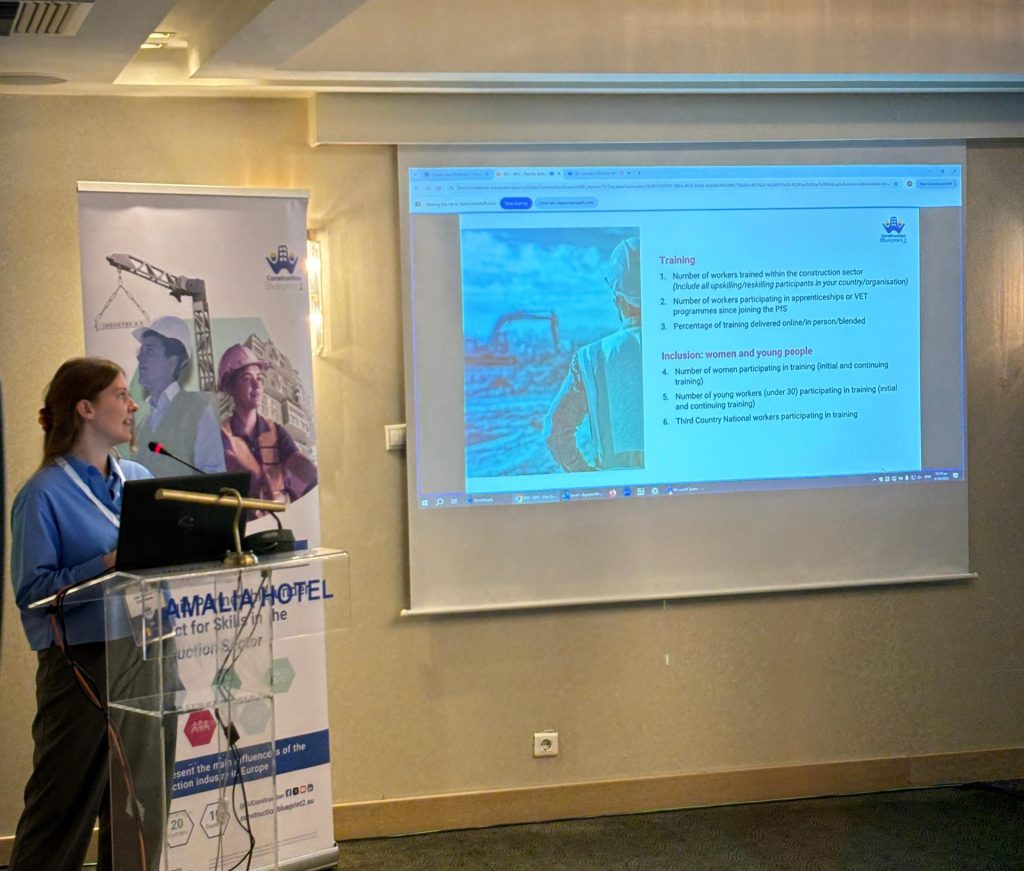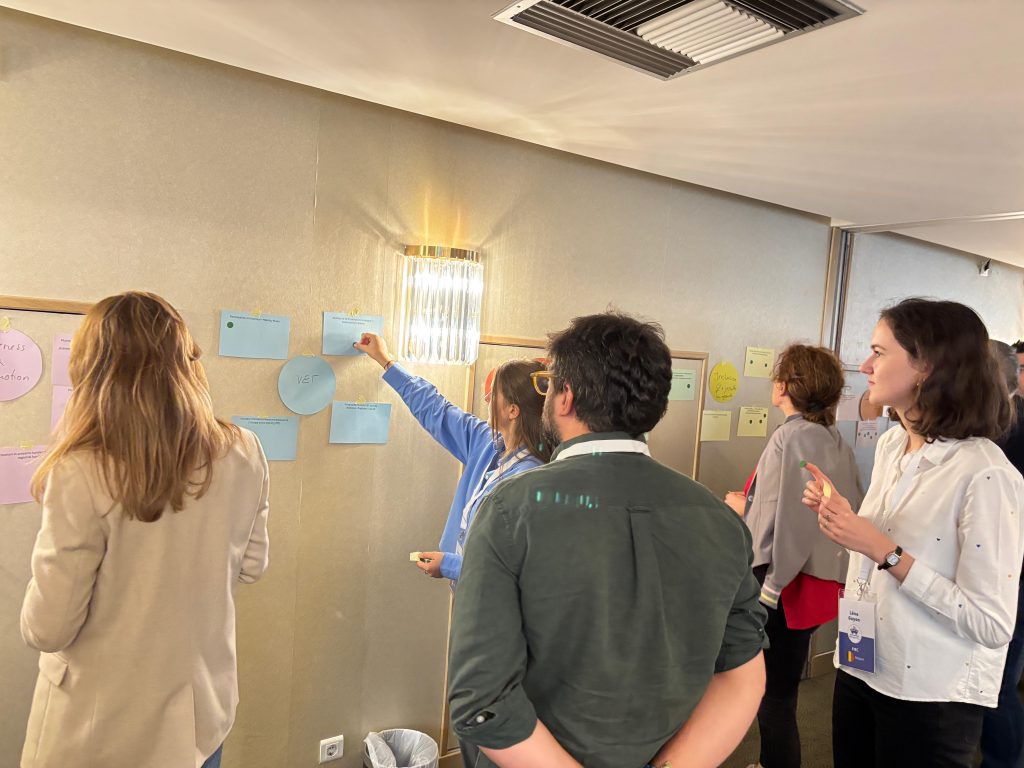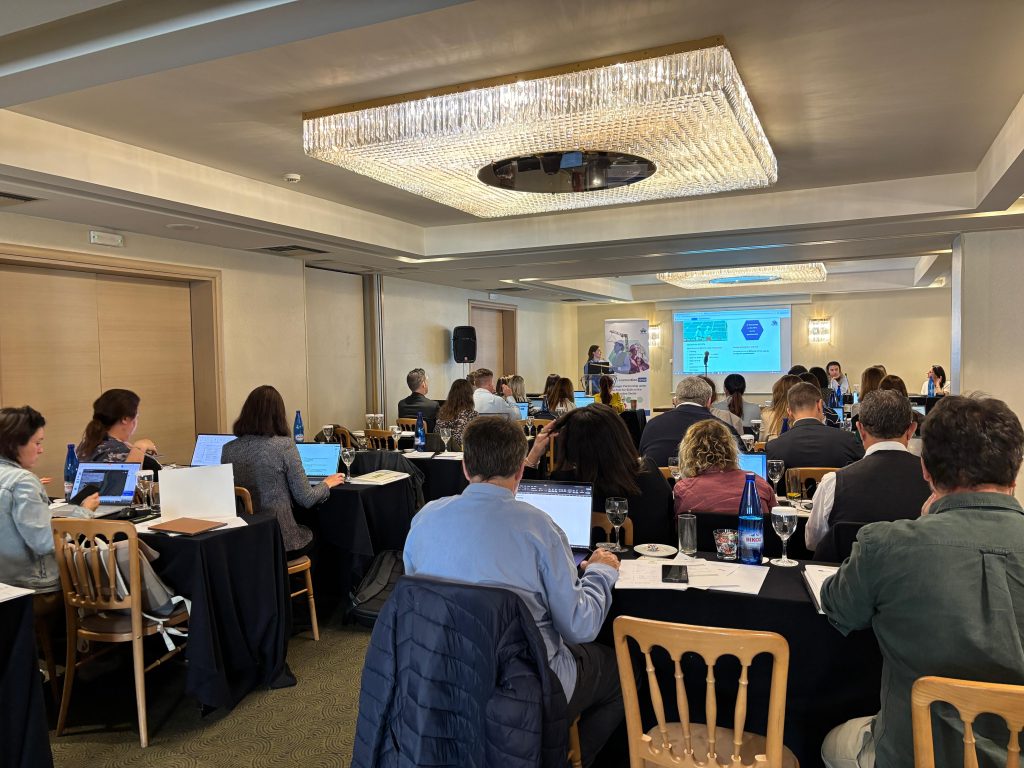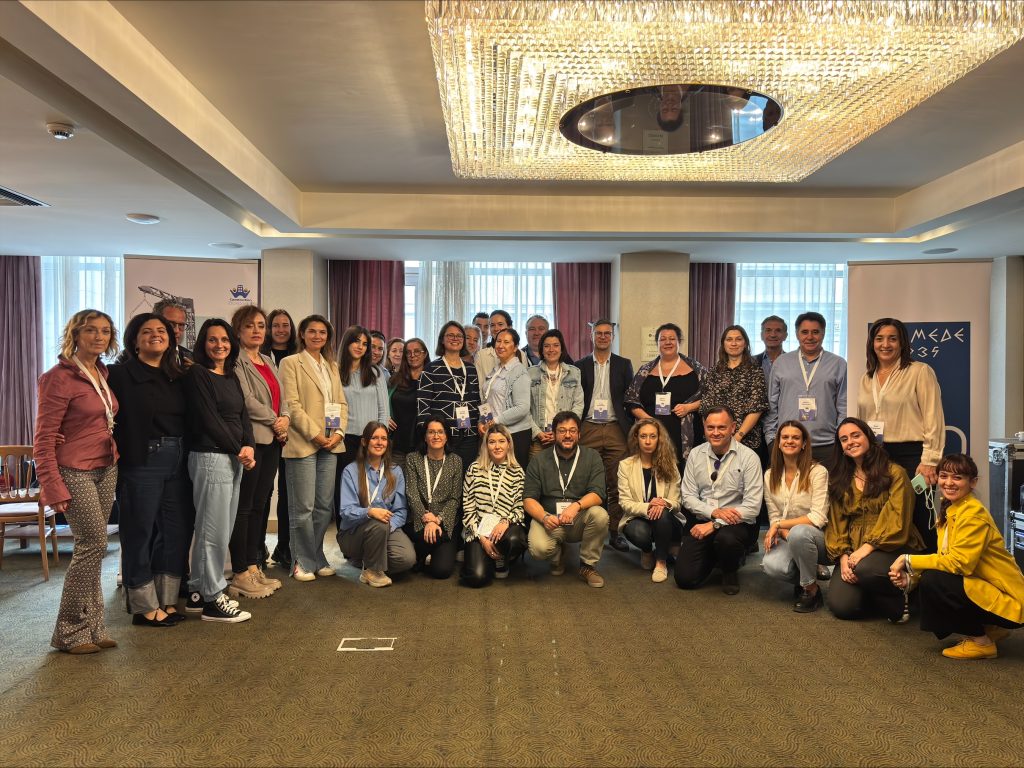
Skills: Construction Blueprint 2 partners meet in Athens to strengthen skills and competitiveness in the European construction sector
October 9, 2025
On 8–9 October, the partners of the Erasmus+ project Construction Blueprint 2 gathered in Athens for their second Transnational Partners Meeting, hosted by the Panhellenic Association of Engineers Contractors of Public Works PEDMEDE. Representatives from 20 organisations across Europe, including EU and national industry federations, trade unions, training providers and public institutions, reviewed progress and discussed the next steps to strengthen skills and competitiveness in the construction sector through the Pact for Skills in Construction (PfS) initiative.
The two-day event featured presentations from the European Commission and project partners on the current policy and implementation landscape. Roman Horváth, from DG Internal Market, Industry, Entrepreneurship and SMEs (DG GROW), provided insights into EU policy updates for the construction sector, highlighting the links between housing, skills and industrial competitiveness. Paolo Zancanella, Project Officer at the European Education and Culture Executive Agency (EACEA), shared updates on continuous reporting and expected project outcomes under the Erasmus+ framework.
Partners reaffirmed their joint commitment to upskilling and reskilling the European construction workforce. FIEC (European Construction Industry Federation), EFBWW (European Federation of Building and Woodworkers) and EBC (European Builders Confederation) presented the latest developments of the PfS implementation in Construction. The consortium reviewed and selected key performance indicators (KPIs) focusing on areas such as women and youth participation, green and digital skills, and national coordination mechanisms. These KPIs will be used in an upcoming questionnaire for Pact signatories, paving the way for a comprehensive monitoring exercise to be launched in 2026.
Discussions also covered the promotion of the Pact and the expansion of its network. As joint coordinators, EBC, FIEC and EFBWW highlighted the goal of reaching more Pact signatories, strengthening cooperation between companies, training centres, and public authorities. In that sense, the first Pact for Skills Newsletter was published on 3 October 2025, showcasing good practices from the signatories of the Pact. Upcoming actions include a dedicated meeting with Pact signatories on 23 October 2025.
Throughout the meeting, partners discussed how Construction Blueprint 2 will deliver tangible results in the coming years, including the monitoring of the Pact for Skills implementation through a European framework of KPIs, the update of training curricula to address green and digital skill needs, and the design of new continuous Vocational Education and Training (CVET) training programmes. Special attention was given to promoting the inclusion of women, young workers and third-country nationals, as well as to supporting national action plans to achieve the Pact’s objectives.
Speakers from the European Commission underlined the importance of aligning project outcomes with EU priorities for a resilient and sustainable built environment. The seminar organised by CEDEFOP on Women and Youth in Construction further emphasised the role of diversity and social inclusion in shaping the future of the sector.
EBC, together with FIEC and EFBWW, is proud to contribute to this collective effort, ensuring that SMEs and craftsmen are equipped with the skills needed to embrace digital and green transformation while keeping the construction sector inclusive, competitive and future-ready.



